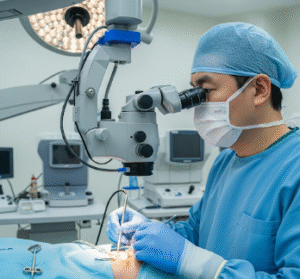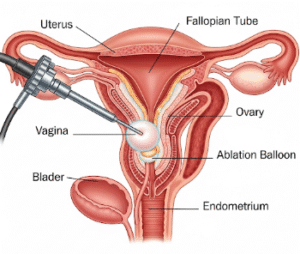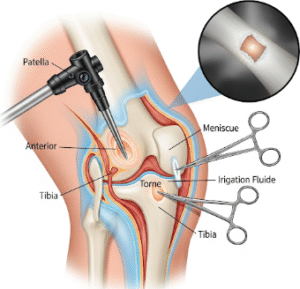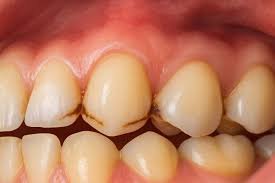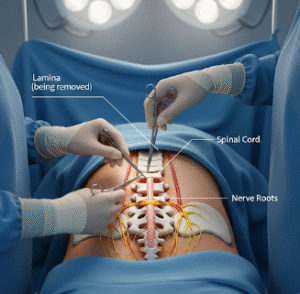Overview
Usher Syndrome is a rare, inherited disorder that affects both hearing and vision, and in some cases, balance. It is the most common condition that affects these senses together. Symptoms begin in childhood or adolescence and progress over time. Early diagnosis and intervention are essential to optimize communication, mobility, and quality of life for individuals affected by this condition.
What is Usher Syndrome
Usher Syndrome is a genetic disorder characterized by partial or total hearing loss and a progressive vision loss known as retinitis pigmentosa (RP). Some forms also cause balance problems due to vestibular system dysfunction. Usher Syndrome is inherited in an autosomal recessive pattern, meaning a child must inherit the mutated gene from both parents. The condition is classified into three types (Type 1, Type 2, and Type 3) based on the severity and onset of symptoms.
Symptoms
Symptoms vary depending on the type of Usher Syndrome:
Type 1:
- Congenital (from birth) profound hearing loss
- Early-onset vision loss due to retinitis pigmentosa (often in childhood)
- Severe balance issues, delayed motor milestones (e.g., walking)
Type 2:
- Moderate to severe hearing loss from birth
- Progressive vision loss beginning in adolescence
- Normal balance function
Type 3:
- Progressive hearing loss starting in adolescence or later
- Progressive vision loss in teenage years or adulthood
- Variable balance issues
Additional symptoms may include:
- Night blindness
- Tunnel vision
- Difficulty understanding speech in noisy environments
- Clumsiness or balance-related falls (in Type 1 and 3)
Causes
Usher Syndrome is caused by mutations in specific genes responsible for the function of cells in the inner ear and retina. Over 10 genes have been linked to different types of Usher Syndrome:
- MYO7A, USH1C, CDH23 – associated with Type 1
- USH2A, GPR98, DFNB31 – associated with Type 2
- CLRN1 – associated with Type 3
The faulty genes lead to degeneration of photoreceptor cells in the retina and malfunction of hair cells in the inner ear, affecting vision and hearing.
Risk Factors
- Family history of Usher Syndrome
- Parents who are both carriers of a mutated gene
- Consanguinity (marriage between close relatives)
- Certain populations with higher carrier frequencies (e.g., Ashkenazi Jews, Finns, some Hispanic groups)
Complications
Without early diagnosis and intervention, individuals with Usher Syndrome may face:
- Complete blindness in adulthood
- Profound deafness or progressive hearing loss
- Communication barriers
- Balance difficulties leading to falls or reduced mobility
- Psychosocial effects, including depression or social isolation
- Educational and occupational challenges
Prevention
As a genetic disorder, Usher Syndrome cannot be prevented after conception, but certain steps may reduce risks or improve outcomes:
- Genetic counseling for at-risk couples
- Carrier screening in families with a known history
- Prenatal or preimplantation genetic diagnosis (PGD) in IVF
- Early screening in children with unexplained hearing loss
- Ongoing surveillance in siblings of affected individuals
Treatment Options in Korea
While there is no cure for Usher Syndrome, South Korea offers comprehensive care plans that combine medical treatment, rehabilitation, and assistive technologies:
- Audiological care:
- Hearing aids for mild to moderate loss
- Cochlear implants in cases of profound hearing loss
- Speech and language therapy for communication development
- Vision management:
- Low vision aids (e.g., magnifiers, adaptive devices)
- Orientation and mobility training for independent navigation
- Vitamin A therapy (under careful supervision) may slow progression of RP
- Gene therapy trials (emerging, under research)
- Balance therapy:
- Vestibular rehabilitation therapy
- Physical therapy to improve coordination and movement
- Multidisciplinary support:
- Educational support with specialized resources for the hearing- and vision-impaired
- Psychological counseling
- Genetic testing and family counseling
Korea’s hospitals utilize advanced diagnostics, cochlear implant programs, and low-vision rehabilitation centers, providing holistic care tailored to each patient’s age, symptoms, and genetic profile.


